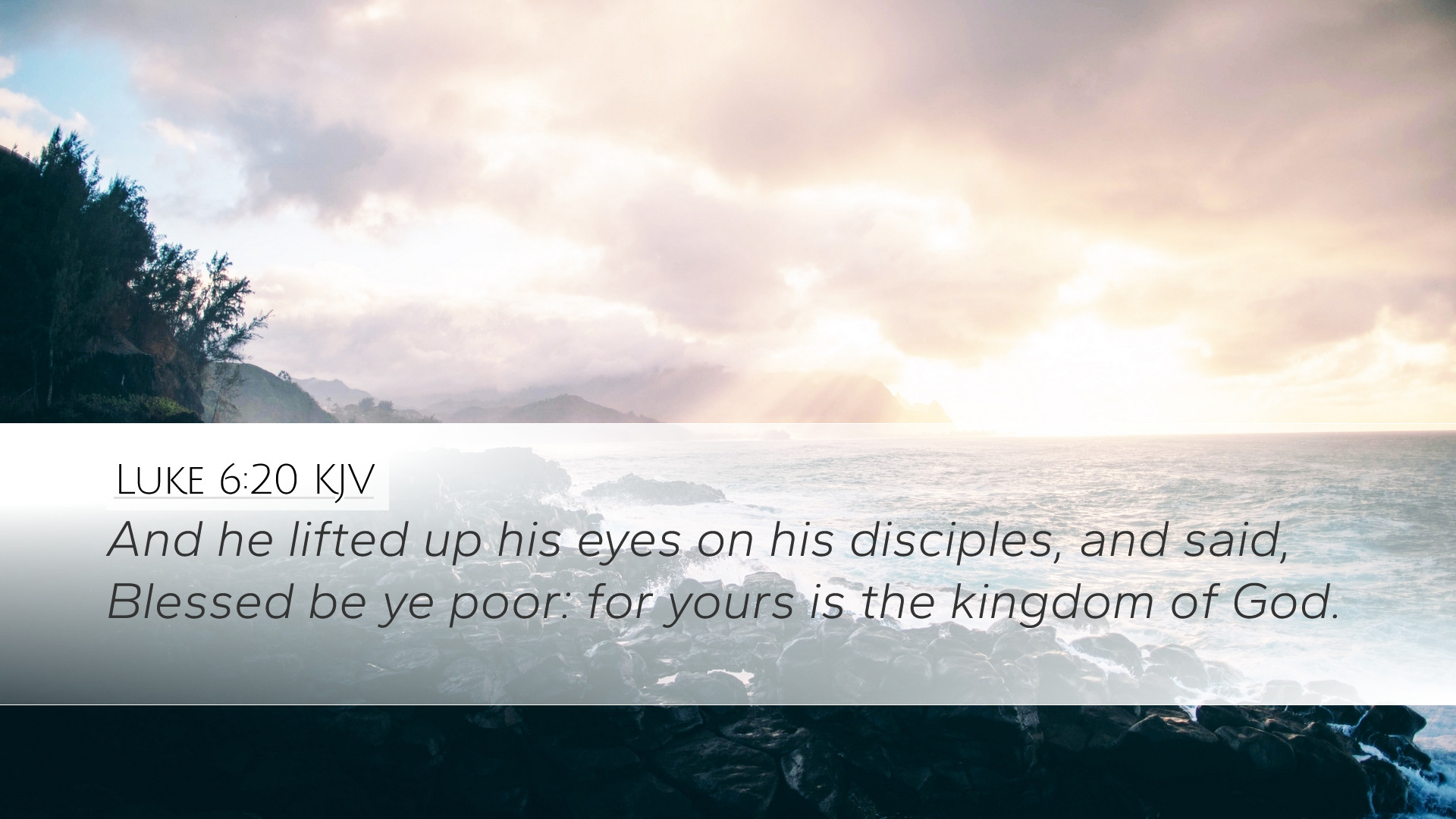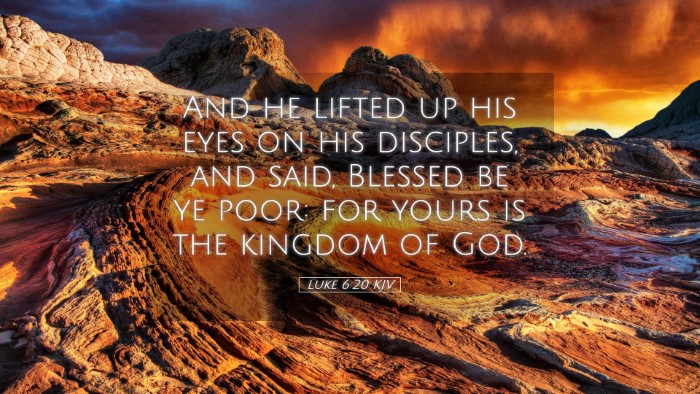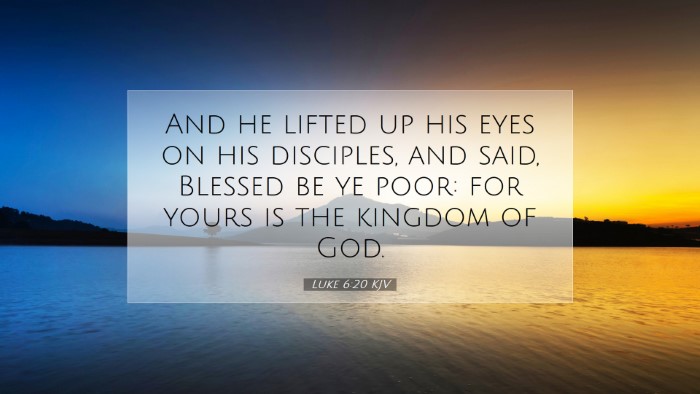Commentary on Luke 6:20
Verse (Luke 6:20): "And he lifted up his eyes on his disciples, and said, Blessed be ye poor: for yours is the kingdom of God."
Contextual Overview
This verse is part of what is often referred to as the "Sermon on the Plain," a collection of teachings by Jesus that emphasize the values of the kingdom of God, often contrasting worldly standards with divine principles. The blessings pronounced here serve as an introduction to Jesus’ ethical and moral precepts that follow.
Theological Significance
The statement "Blessed be ye poor" holds profound theological implications. It draws attention to the significance of poverty, both material and spiritual, within the framework of the kingdom of God.
1. The Poor: A Special Concern
Matthew Henry notes that Jesus emphasizes the state of being poor, which suggests not only financial indigence but also a sense of spiritual humility. This aligns with the biblical principle that God holds a special concern for the marginalized and downtrodden.
2. Contrast with Worldly Wisdom
Albert Barnes elaborates on the nature of the blessed in this verse. He points out that in worldly terms, poverty is often associated with a lack of blessing. Yet, Jesus flips this idea, asserting that the poor are blessed because they have the potential to inherit the kingdom of God. This inversion of values becomes a recurring theme in Jesus's teachings.
3. The Kingdom of God
Adam Clarke highlights that the phrase "yours is the kingdom of God" indicates that the kingdom is not solely a future hope but a present reality accessible to those who find themselves in lowly conditions. The blessings pronounced are both eschatological and existential, inviting the poor into the present experience of God's reign.
Application for Believers
This passage extends beyond a mere statement of condition; it challenges believers to reconsider their attitudes towards wealth, poverty, and their spiritual state.
1. Embracing Humility
Henry suggests that recognizing our spiritual poverty leads to a deeper dependence on God. He encourages readers to embrace humility, acknowledging their need for divine grace and mercy.
2. Redistribution of Values
Barnes notes that the church must actively engage with and support the poor, reflecting God’s justice and compassion in tangible ways. This call challenges believers to move beyond social norms and provide care and advocacy for those in need.
3. Spiritual Richness in Christ
Clarke explores the idea that though one may be materially poor, they are rich in their relationship with Christ. This encourages believers to find their identity and contentment in Christ, which transcends temporal conditions.
Conclusion
In summary, Luke 6:20 encapsulates a radical message that flips worldly expectations on their head. It proclaims that being poor can be a position of divine blessing. As pastors, students, and theologians navigate the implications of this passage, they are invited to reflect on the nature of God’s kingdom, actively engage with issues of poverty, and find their true wealth in Christ.
Further Reflections
As we meditate on this verse, let us consider:
- How does our understanding of wealth align with or diverge from biblical teaching?
- In what ways can we serve those who are financially and spiritually poor in our communities?
- What does it mean to see our everyday struggles through the lens of God's kingdom?


